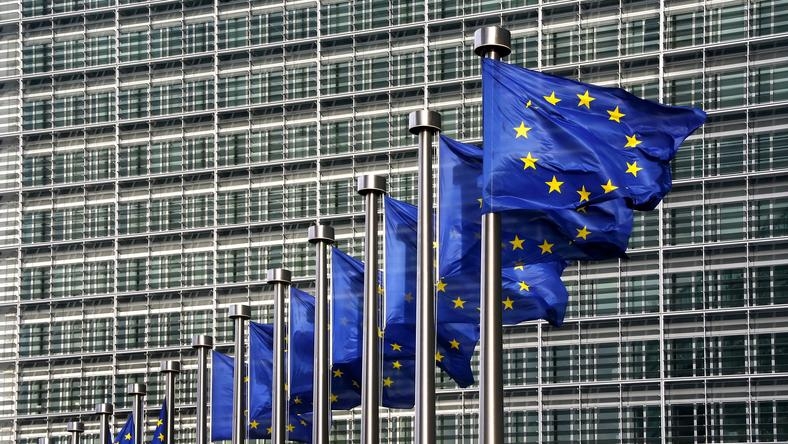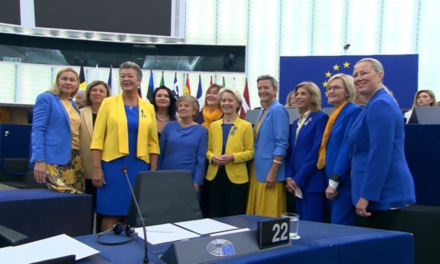"It would be time for the governments and the European Commission to realize that they have become too involved in conducting," says Gyula Hegyi, vice-president of the MSZP.
"Brussels should be told, it got too involved in directing sanctions" - this is the title of the article by Gyula Hegyi, the vice-president of the Socialist Party and a former member of the European Parliament, published in the Index.
According to the left-wing politician, "in modern history, no country has ever been subject to such a total system of sanctions as the one the West has recently introduced against Russia."
Hegyi also points out that "decisions banning Russian cats, Turgenev's oak tree, the Paralympics, Pushkin and Tchaikovsky are dictated by the kind of over-the-top, geeky compulsion to conform that overshadows even the most noble causes. Since Russians are the most cat-friendly people in Europe, the cat sanction is unlikely to increase sympathy for the West among them. But the interruption of scientific cooperation causes much more serious damage than punishing cats".
At the same time, the "moral legitimacy of the sanctions aimed at the Russian economy must be recognized in principle". Hegyi believes that it certainly deserves moral recognition that many Western companies voluntarily closed their stores and businesses in Russia, causing heavy losses to themselves and their shareholders, thus expressing their solidarity with Ukraine.
He called the banning of Russian news sources "peculiar" and considers it unnecessary overzealousness. He also addresses Russia Today separately, as he writes: "The principle of freedom of the press is only worth abandoning in the case of satanic or particularly effective enemy propaganda, and RT cannot be called either."

Source: Facebook
The vice president of the MSZP also writes that
"the United States would force the imposition of the strictest possible sanctions on as many countries as possible, while continuing to import the important uranium from Rosatom".
In relation to the attitude of European countries to the gas and oil embargo, he states that they do not care about those - for example, our country - who obtain both gas and crude oil primarily from Russia. "Everyone seems to be pricing in the fact that as a result of the sanctions, inflation, economic decline, shutdown of entire industries and severe disruption of energy supply can be expected in the European Union," writes Hegyi.
He reminds us that in February, US Secretary of State Antony Blinken clearly expected and promised a quick stop to the Russian invasion from the first group of sanctions. "Since then, we have been at the fifth or sixth, and no one believes that they will have any effect on the Russian war machine in the short term. The Austrian chancellor stated that the sanctions against Russia should be maintained until the end of the war. The Polish and Baltic governments, on the other hand, have indicated that they would maintain them forever, or at least until the fall of Putin and the disintegration of the Russian Federation.
The American sanctions against Cuba, which have been in force for sixty years, show that it is easy to impose sanctions, but it is difficult to release them, even if their maintenance is completely counterproductive."
According to the socialist politician, the sanctions package also raises the question of where are the limits of legal certainty and liberal democracy. As he puts it:
"If we put together the essence of the sanctions, we see that almost all elements of the capitalist economic policy can be suspended. Bank deposits can be frozen or confiscated for political reasons”.
Gyula Hegyi believes that "the exercise of power by governments - and above all the American government - that goes beyond all market principles goes so smoothly, partly because during the coronavirus epidemic, we are used to the fact that the state has the right to almost everything. The vaccination and quarantine management of the Chinese Communists, Iranian Islamists, and European liberal democrats basically followed the same model. Probably professionally correct. Just as it was right to impose some important sanctions on the Russian invasion.
But it would be time to let the governments and the European Commission know that they have gotten too involved in directing".
2022Plusz: Finally, a critical voice against Brussels was heard on the left. Maybe not a coincidence. Gyula Hegyi has mentioned several times that the MSZP also wants to become a national party and why it could not be a social democratic party in Hungary that also professes national interests. Well, of course there is a flaw in the matter, since it is the successor party of the MSZMP, and as we know, "a communist dog does not make a democratic bacon", yet we see a chance for a kind of movement within the party lately. (The party chairman resigned, Ujhelyi would rename the party, etc.)
Perhaps it is a kind of realization that it is not possible to continuously politicize against the interests of the nation and if they do not want to completely sink into Gyurcsány's bottomless sack, it is worth groping towards a national minimum. An unprincipled internationalist attitude was always characteristic of the MSZMP and later the Hungarian left, while the other countries of the communist bloc, such as Romania and Czechoslovakia, even organized their dictatorships on a national basis. Today, on the left-liberal side, internationalism has been replaced by the idea of globalism, the essence of which is the same. The outsourcing of power from the hands of the people and reliance on foreign forces. Formerly Moscow, now Brussels and Washington.
A large number of people voted against this policy on April 3rd. It would be worth changing and not scolding people. Perhaps Gyula Hegyi's statement is also one of the stages of this awakening. Hippocrates said: if you can't change, you can't be helped. And Viktor Orbán has no business preventing the sinking of an opposition party either.
Source: hirado.hu
Featured image: Source: Nortphoto













